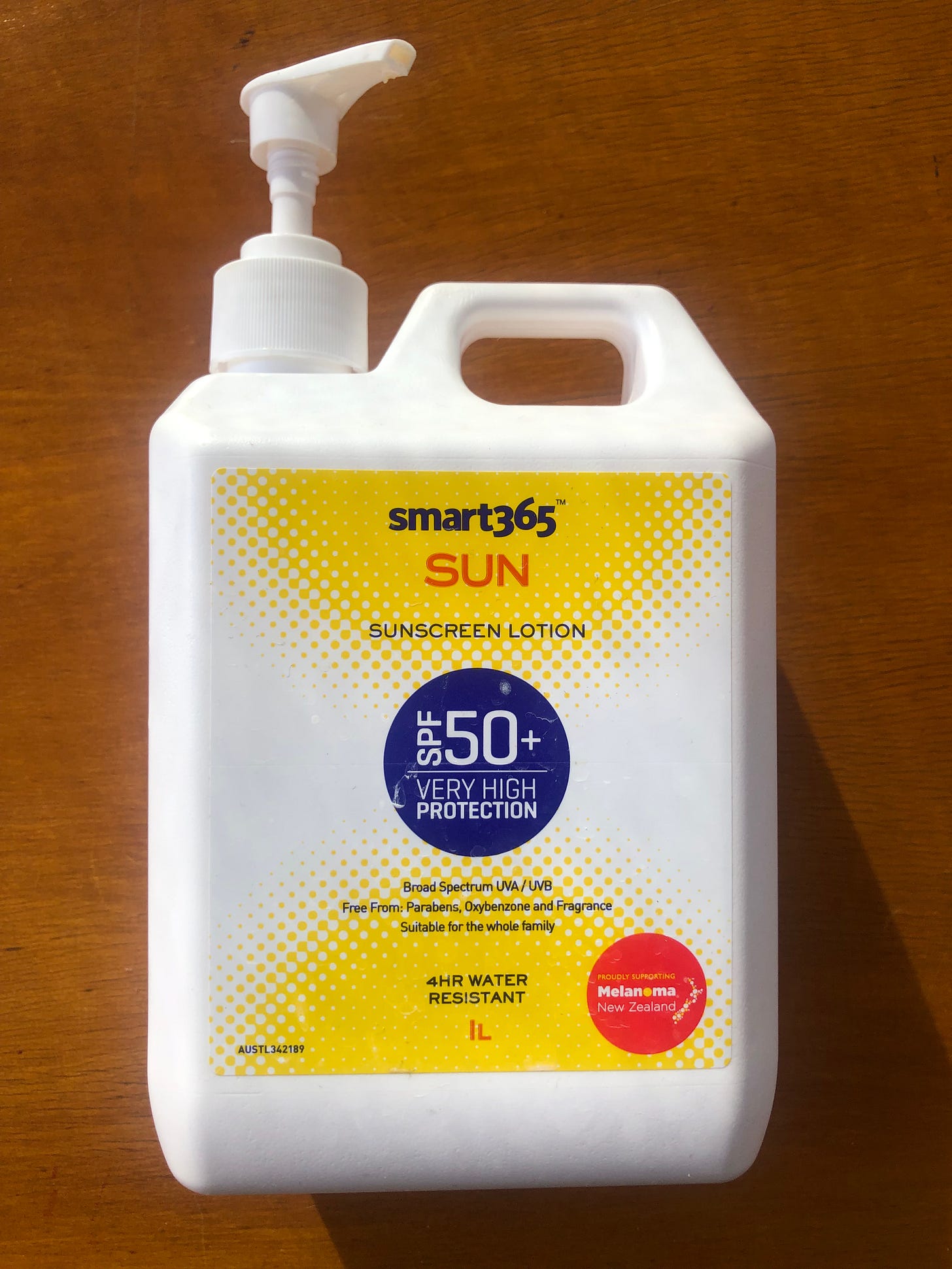Sunscreens and Climate Change
An unwanted interaction
The provocative text below came in on my daily briefing from Nature. It refers to an article just published by their American counterpart, Science.
How sunscreen turns into a coral killer: Oxybenzone — a common UV-blocking ingredient in sunscreen — transforms into a chemical linked to coral bleaching when it interacts with undersea creatures. Sea anemones, which are similar to corals, make oxybenzone water-soluble by tacking a sugar onto it. This inadvertently turns it into a molecule that is activated by sunlight and can damage cells. The animals “convert a sunscreen into something that’s essentially the opposite of a sunscreen”, says environmental engineer Djordje Vuckovic.
Nature | 5 min read
I often take pains to point out to the public that Ozone Depletion and Climate Change are different things. But there are many interactions between them too. The article points to an unwanted one. It’s long been known that exposure to UV is a risk factor for skin cancer, as discussed here a couple of weeks back. But widespread use of sunscreens came about only after we realised that UV was increasing due to ozone depletion.
It’s been known for some time that some of the chemical ingredients in sunscreens can harm the environment - such as by bleaching corals or affecting reproduction of aquatic organisms. Now we learn that the problems may be accelerated by the breakdown of some of these chemicals by other organisms. So the climate-related down-side is worse. The unwanted side-effect amplifies damage to coral already occurring because of increased ocean temperature and acidification.
The solution is to use sunscreens that don’t contain that problem chemical, oxybenzone. I just checked the labels on the ones we have here. None of them contain it. Nor do they contain another problem chemical, paraben, which was used in early sunscreens but which has itself been linked to cancer. Most sunscreen products are exorbitantly priced, but according to the fine print on my cheapest everyday sunscreen (below), it seems OK.
But please check the label before purchase. The mineral-based sunscreens that contain reflective coatings of zinc oxide or titanium oxide may be the safest for both you and the environment. More on that subject soon.

